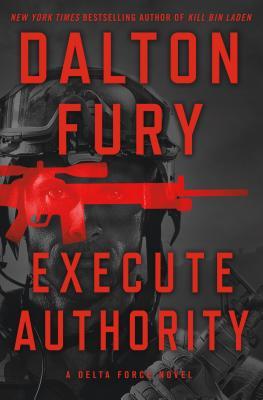What do you think?
Rate this book


292 pages, Hardcover
First published September 5, 2017
Starting as an enlisted soldier and instructor in the elite Army Rangers in the mid-1980s before becoming an officer, Greer later joining U.S. Army Special Forces Operational Detachment – Delta, more commonly known as "Delta Force," the Army's version of SEAL Team Six. He published "Kill Bin Laden" in 2008, recounting his participation in the unsuccessful 2001 mission to capture elusive terrorist leader Osama bin Laden when he was holed up in the Tora Bora mountains of Afghanistan. He went on to write a series of other books, including a fictionalized account of special forces operations.
Greer, 52, was perhaps the first in what has become a long series of shadowy warriors-turned-authors who traded their rifles for pens to meet the public's growing enthusiasm for details on the government's most classified missions. Civilian leaders and military planners increasingly rely on these elite commandos to accomplish secret missions in modern war zones, creating tension between those willing to tell the story and others who choose to uphold their pledge to secrecy.
"Every one of us was dubbed persona non grata by our former organization," Greer told U.S. News in 2015. "To some, that doesn't mean squat. To others, it can be pretty painful as you lose a lot of close friends."
He spoke shortly after Matt Bissonnette, one of the SEALs who contributed to the 2011 mission that killed bin Laden, came under formal Pentagon inquiry for writing his own book, "No Easy Day," as did Robert O'Neill, another of the SEALs on that mission, who revealed himself on Fox News and claimed he fired the shot that killed the al-Qaida leader.
Their actions prompted top SEAL leaders to write a letter to those within their ranks, admonishing those who break from what they described as the "critical tenet of our ethos," to not advertise the nature of their work or seek recognition for it.
"We do not abide willful or selfish disregard for our core values in return for public notoriety or financial gain," Navy Rear Adm. Brian Losey and Force Master Chief Michael Magaraci wrote at the time.
Both Bissonnette and O'Neill claimed they chose to tell their stories for the sake of the American public.
"It was UBL, the biggest target of our generation," Greer explained at the time, using the military's prefered acronym for bin Laden, and referencing the fact that the White House confirmed reports the SEAL unit had conducted the assault. "Once the gates were opened by the Obama administration, I believe both Biss and Rob decided to make their claim to history while it was still marketable."
The greatest source of criticism for the former commandos centered on their decision not to seek approval through established channels at the Department of Defense for discussing classified information. Greer submitted copies of his proposed books for review, as most others like him do, and any information the Pentagon deemed sensitive was either changed or stricken.
Others who knew Greer say he was at least in part inspired to write his own book by a perceived barrier between the general public and the less than 1 percent of them who fought the seemingly never-ending wars in Iraq and Afghanistan.
"It brings a lot of pride to the American people, especially in times that are needed," says Jim Reese, founder of security consulting firm TigerSwan who served with Greer in both the Rangers and Delta as a fellow officer. "You've got this organization that is in the shadows, and part of it should be. But this is the New York Yankees. What Tom was able to do with both his books and his fiction books was to bring the reality to Middle America, to let Americans be proud of this small element of Americans.